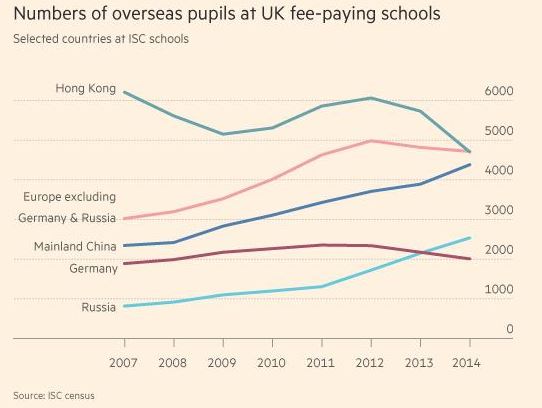The Financial Times has an extensive special report about why UK boarding schools continue to appeal to parents around the world. As emerging markets have matured, British boarding schools have gone from being the preserve of the wealthy elite in those countries to being an object of aspiration for the middle classes. Moreover, families are also starting to send their children away at a younger age – from the age of eight, rather than straight into senior schools at 13.
Today according to the Independent Schools Council, 32% of the UK’s boarding school students are non-British nationals with parents living overseas. Of the total number of non-British students at all the UK’s fee-paying schools (both day and boarding) with parents living overseas, the greatest number is from Hong Kong (4,704).
UK boarding school fees have also risen steeply in recent years and often beyond the reach of even British families earning £100,000 a year. In fact, the cost of sending a child to a UK boarding school has increased 38% since 2007. As the global economy went into meltdown after 2007, the average cost of a term’s tuition and boarding was £6,949. In 2014, it was £9,596.
Moreover, British attitudes about sending children off to become students at boarding schools have also changed as now many families prefer having their children at home while stories of abuse have not helped the image of schools.
Overseas parents also need to be careful as some recruiting agents are paid on a commission basis. This encourages them to place students in unsuitable schools to earn that commission.
Nevertheless, William Richardson, general secretary of the HMC (the Headmasters’ and Headmistresses’ Conference), told the Financial Times that British boarding schools are very good at making children resilient adults who can earn a good living:
“Children in boarding schools win out in the graduate labour market. They do well all round, and are self-confident, resilient and networked”

